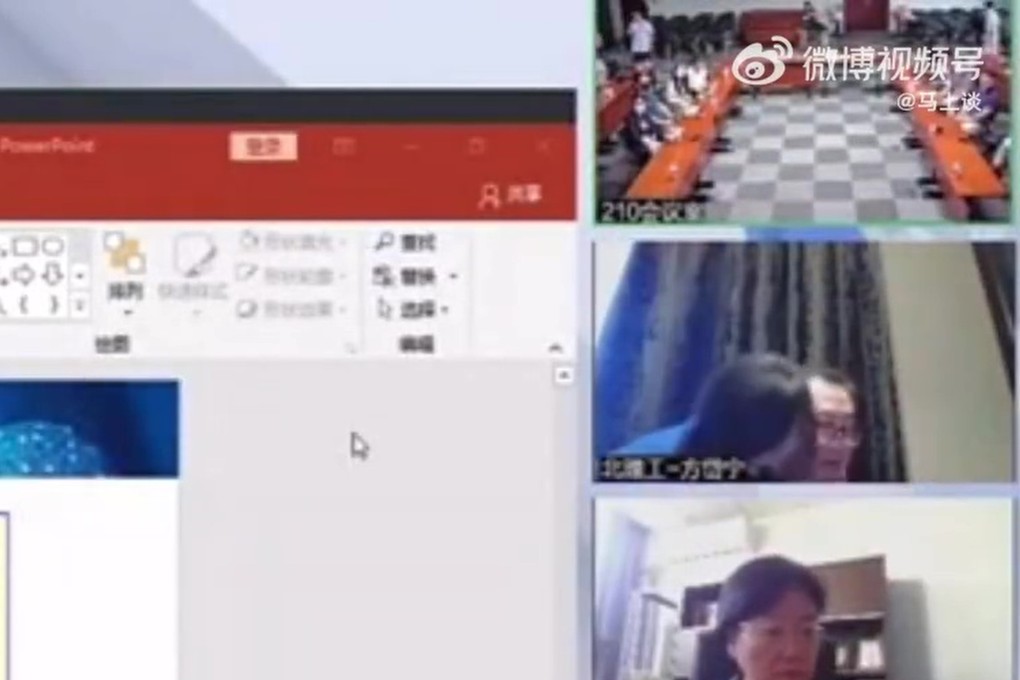Chinese university investigates hypersonic scientist’s on-screen kiss
- Inquiry prompted by video upload of former Beijing Institute of Technology vice-president being kissed by a woman during an academic conference
- The woman is believed to be a postdoctoral researcher, but her identity has not been independently verified

“The school is paying extra attention to this incident and has launched an official investigation,” Beijing Institute of Technology said on Monday.
“The relevant situation is being verified. The investigation result will be announced at a proper time to respond to social concerns.”
The announcement came after footage of Professor Fang Daining, 64, a senior member of the Chinese Academy of Sciences and former vice-president of BIT, being kissed by a woman during an online academic meeting was posted online.
It is not clear when the meeting took place, but the video started to be shared widely on Sunday.
The woman is believed to be a postdoctoral researcher, but her identity has not been independently verified by the South China Morning Post.
The official site of BIT’s Institute of Advanced Structure Technology, where Fang is an honorary president and chair scientist, was taken offline on Monday.